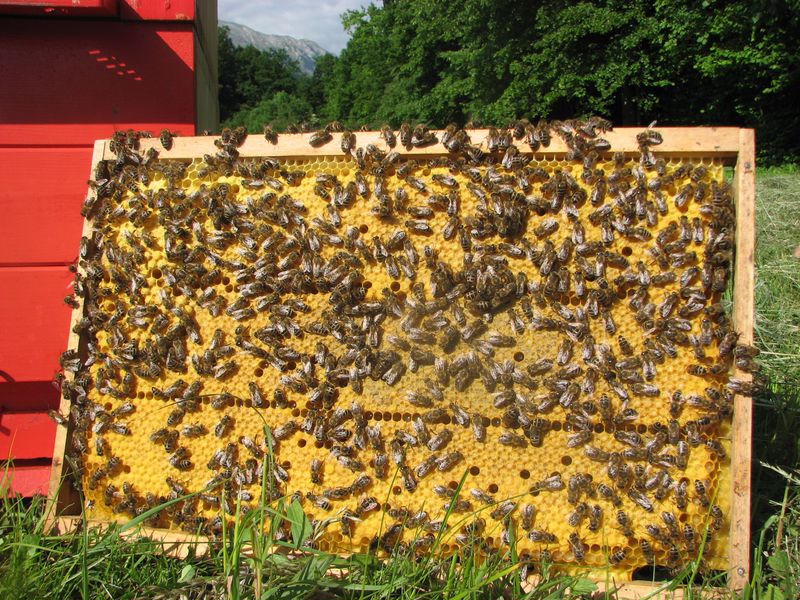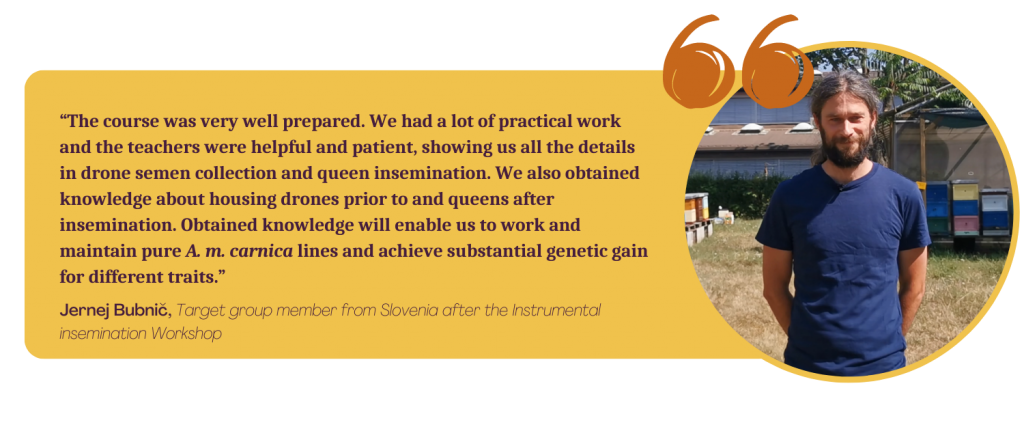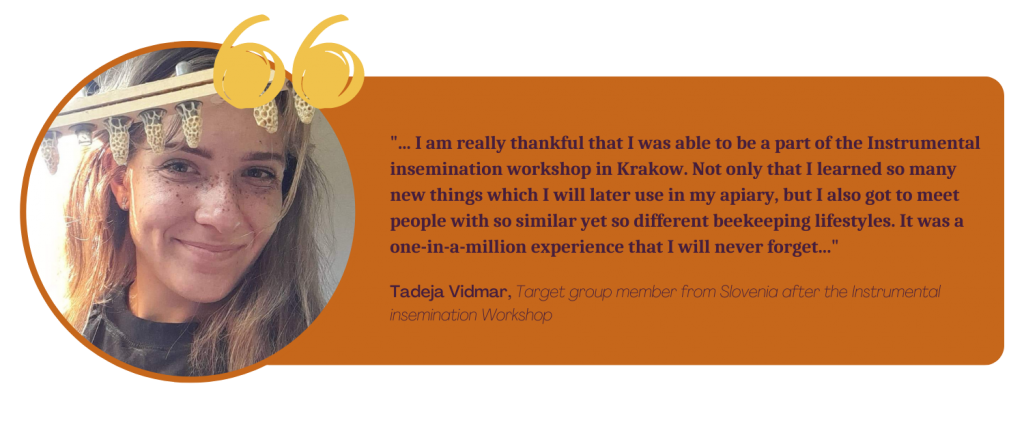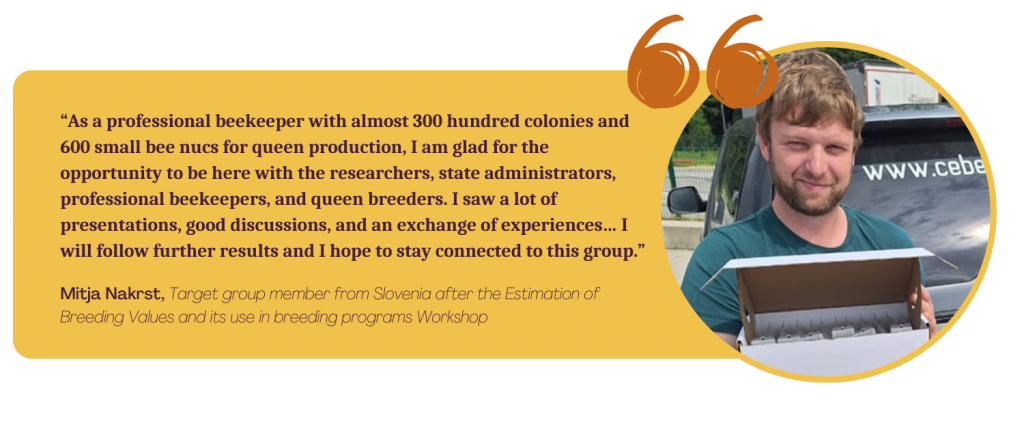
12 September 2023 – Regional cooperation plays a pivotal role in fostering collaboration, sharing resources, and providing enhanced opportunities for young individuals. Within the framework of the EEA and Norway Grants, the BeeConSel project – Joint Effort for Honey Bee Conservation and Selection is poised to contribute significantly to the upskilling of young beekeepers by recognizing them as one of the target groups and involving them in the project.
Through the implementation of self-sustainable mating control, the BeeConSel project offers a cutting-edge system that enables stakeholders, including queen breeders and beekeepers, to access advanced breeding techniques. This innovative approach enhances the efficiency of breeding programs, enabling selection for crucial traits such as disease tolerance, behaviour, and honey yield. By participating in the project, young beekeepers gain access to these opportunities, empowering them to improve the quality and productivity of their local honey bee populations.
Through the project, the young beekeepers are provided with unique opportunities to expand their knowledge and skills in various aspects of beekeeping and honey bee conservation. Through workshops such as Estimation breeding values in honey bees, Instrumental insemination, and Observation of honey bees’ nuptial flights, young beekeepers had delved into advanced techniques and gain hands-on experience. The workshops also served as dynamic platforms for young beekeepers to interact with experts and fellow enthusiasts. Through these collaborative learning environments, participants not only gain knowledge but also forge valuable connections and networks within the beekeeping community. These professional relationships extend beyond the workshop settings, creating long-lasting collaborations and mentorship opportunities for young beekeepers.

The collaboration between researchers and beekeepers nurtures a symbiotic relationship where scientific knowledge meets practical experience. By being an active part of this network, young beekeepers gain access to mentorship, guidance, and support from experienced professionals, fuelling their own growth and development. This collaborative approach ensures the sustainability of the project’s outcomes and fosters a community of passionate and skilled beekeepers.
One of the key aspects of regional cooperation in the BeeConSel project is the sharing of resources. The project establishes a collaborative environment for researchers and beekeepers by pooling together expertise, knowledge, and infrastructure. This synergy allows young beekeepers to tap into a vast network of professionals, thereby expanding their own knowledge and skills. The shared resources also facilitate the dissemination of best practices, enabling young beekeepers to learn from successful breeding programs and adapt them to their local contexts. The project acts as a catalyst for the exchange of ideas and experiences, fostering a culture of continuous learning and improvement.

The BeeConSel project’s focus on breeding programs and the improvement of local honey bee populations contributes significantly to the conservation of these vital insects. By selection for traits such as disease tolerance, behaviour, and honey yield, the project ensures a higher survival rate for local honey bees. This, in turn, enhances the viability and resilience of the ecosystem services provided by honey bees. Young beekeepers who actively engage in the project become ambassadors for the conservation of local honey bee populations. By recognizing and accepting the improved local stock, they contribute to the long-term sustainability of these populations and preserve the delicate balance of ecosystems.
Through their active involvement, these passionate individuals become stewards of conservation, ensuring the recognition and acceptance of improved local stock by the beekeeping community. The BeeConSel project not only addresses the challenges faced by honey bee populations but also lays the foundation for a sustainable future, where young beekeepers and researchers play a crucial role in preserving and enhancing the invaluable contributions of these remarkable insects.

The BeeConSel project partners are Agricultural Institute of Slovenia, Norwegian Beekeepers Association, Swedish University of Agricultural Sciences, Company for Applied Research and Permanent Education in Agriculture (CARPEA) from North Macedonia and the Centre for applied life sciences Healthy food chain Ltd. for research and development (CALIS) from Osijek, Croatia.
Source: Regional Funds Online Magazine